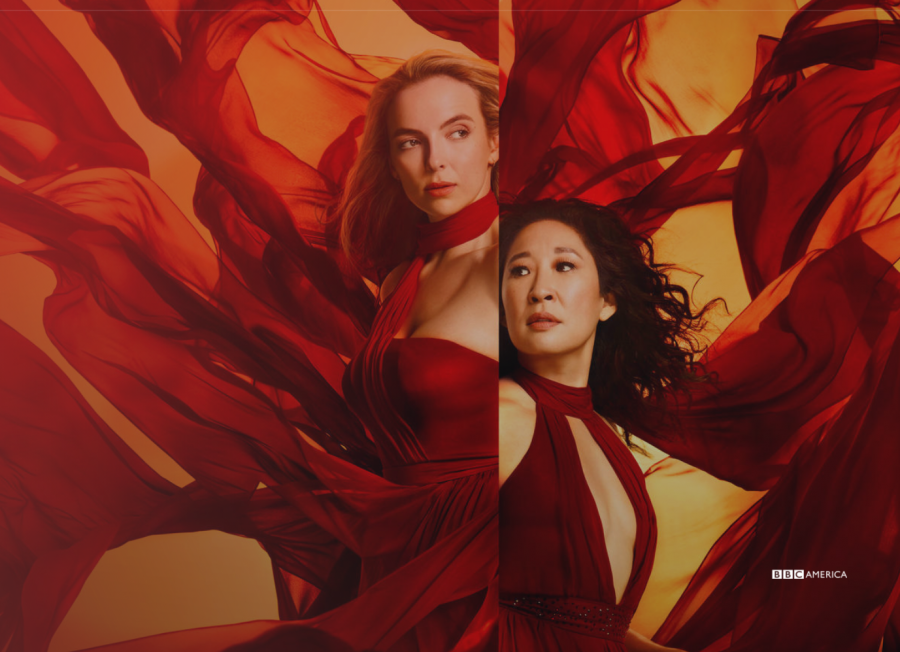Staff Picks: Our favorite LGBTQ+ fictional characters
The Pitt News Staff’s favorite LGBTQ+ characters to celebrate all year long.
June 9, 2021
Happy Pride Month! We celebrate our favorite LGBTQ+ characters all year long, and lean on them maybe more than we should for our sanity, but now in the spirit of June we’re bringing them to you to enjoy. Here are our fictional LGBTQ+ faves to watch, cheer on and cry about available on various streaming services near you.
Alice Pieszecki (“The L Word”) // Kaitlyn Nuebel, Staff Writer
If Alice Pieszecki were a real person, she’d be at the top of the list of lesbian icons, right next to Ellen DeGeneres. Unfortunately, the real world will never benefit from her wacky sense of humor and insight about the lesbian community. But at least we get to see it in “The L Word.”
Airing its first season in 2004, “The L Word” is a fictional drama series about a group of lesbians living in Los Angeles. Alice (Leisha Hailey), a writer for LA Magazine, creates a chart of lesbians’ one-night stands to prove her belief that everyone has slept with everyone else. She stays up to date on the drama and gossip circulating in the lesbian community, a taxing job to have before the rise of blogs and social media.
In the show’s 2019 reboot, “The L Word: Generation Q,” Alice hosts her own talk show, bringing on real life iconic lesbians as guests, including Megan Rapinoe and Roxane Gay. Watching Alice’s career thrive in her gay and fictional world gives hope for those in our real one. It also draws attention to what we’re missing out on — gay talk shows? Yes, please!
Joe and Nicky (“The Old Guard”) // Diana Velasquez, Culture Editor
It would be a crime to include Joe or Nicky on this list without mentioning the other, so this will be a dual entry for our favorite LGBTQ+ characters. There is no couple in the world that is more attached, more in love and more together than this immortal warrior pair from Netflix’s hit action movie “The Old Guard.”
“The Old Guard” follows the lives of immortal mercenaries led by Andromache the Scythian (Charlize Theron) who’s been living and fighting on this plane we call home for more than 4,000 years. And while watching Theron swinging around an axe is a testament to LGBTQ+ pride in itself, the shining stars of the movie are the enemies-to-lovers couple on the team, Yusuf al-Kaysani (Marwan Kenzari) and Nicolo di Genova (Luca Marinelli) who share quite possibly the most romantic speech scene I’ve ever seen in my life. Joe and Nicky initially met about 900 years ago fighting in Jerusalem, on opposite sides of the first Crusade. After killing one another in battle, and subsequently coming back from the dead with immortality, they fall in love.
Throughout the movie they have some truly adorable scenes together, interspersed between the action scenes where they beat down baddies with swords. It’s one of the best long-term relationships I’ve seen on screen to date, and after almost a millennia spent together you’d think they’d be at one another’s throats. But they’re only more in love than they were the day, let alone the century before.
David Rose (Schitt’s Creek) // Charlie Taylor, Senior Staff Writer
“Schitt’s Creek” is a near-perfect sitcom, boasting a dry sense of humor and eccentric yet lovable characters. The show follows the wealthy Rose family, who find themselves broke and living in the small town of Schitt’s Creek after their financial manager commits fraud. David (Daniel Levy), a rich millennial with little understanding of the real world, always has a snarky comment to make about the locals and their tacky fashion choices. But over the course of the show, he comes into his own, building genuine friendships and romantic relationships with people in Schitt’s Creek — both male and female.
For all his eye-rolling and judgmental glances, David cares deeply about the people around him. He’s an endearing character, with a tough, apathetic exterior and a sensitive, loving interior. He’s also one of the few examples of pansexual representation on TV. And his family’s acceptance of his identity means that when they accidentally encounter one of his partners leaving the shower, the experience is funny, not scandalous.
Villanelle (Killing Eve) // Maria Scanga, For The Pitt News
Queer dreams came true when “Killing Eve” birthed its main character, Villanelle (Jodie Comer). A worldwide talented assassin, Villanelle manages to avoid getting caught despite her sometimes messy murders. She is fierce, unafraid, intelligent and has sex with women. What makes her queer sexuality so interesting in “Killing Eve” is that it’s portrayed as just another facet of her personality, rather than a defining characteristic. This normalization of queerness is a pleasant change to the onslaught of queer representation that seems to make characters’ queerness their whole personality.
Villanelle manages to flirt and charm unsuspecting women who she finds attractive, has sex with them, then, if she feels like it, nonchalantly murders them. Her character is revolutionary for queer representation in that she is not a stereotypical lesbian, nor is she a typical media character. She exudes self-confidence and makes it so that being a lesbian is an afterthought, nothing more than a sexual preference. With the show’s high success rate and the A-list cast, Villanelle’s queer identity and the way the show represents it has paved the way for future healthy queer representation. Besides, there’s almost nothing as unusual and epic as a lesbian assassin who speaks multiple languages.



